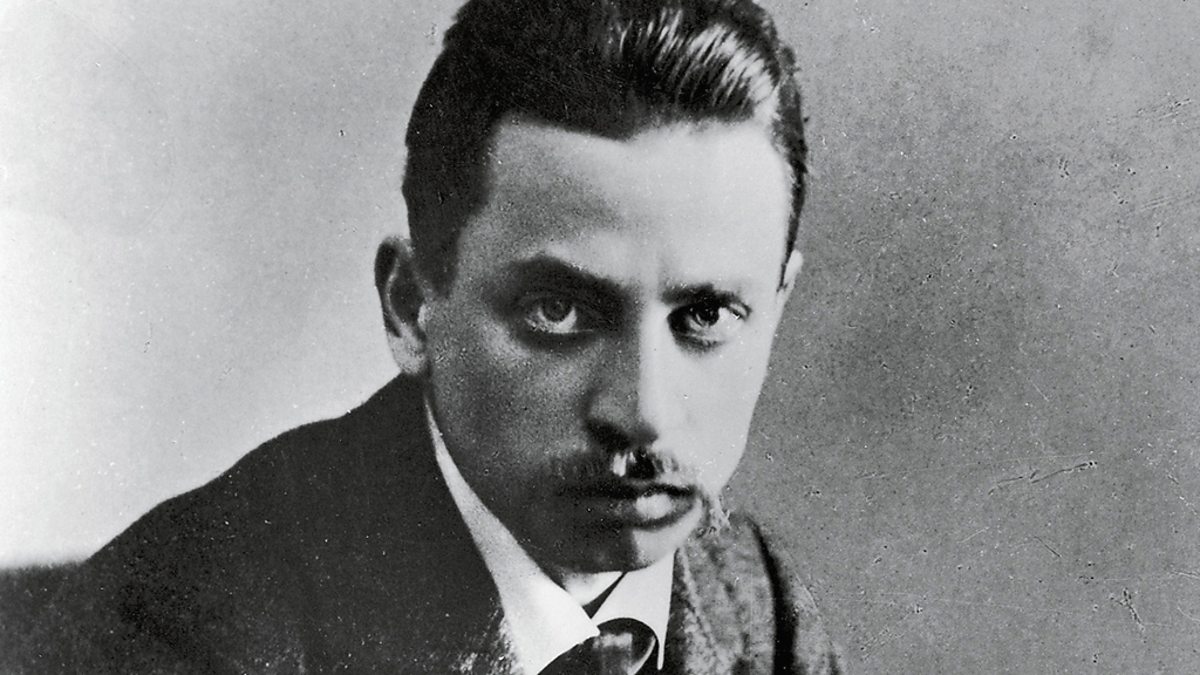As Rilke wrote: narcissistic, spontaneous, impartial
Rilke is a unique writer, because he is one of the few who managed to combine many traditions that existed before him and offer literature something new at the same time. In particular, a powerful poetic stream, which can dominate even in prose works.
The future poet was born in 1875 into the family of Joseph Rilke, an official. Early modernity dominated Europe at this time, with its advocacy of the constant crime of boundaries: consciousness, poetics, and hagiography. Writing for authors of this time is inseparable from life, it is part of biographical strategy and myth-making. The ideologeme “I live as I write” and “I write as I live” are fundamental principles of early modernism, the roots of which can be seen primarily in German Romanticism.
Rilke was fortunate to live in a time of decline of positivist principles, which were already not particularly firmly entrenched on Austrian soil. Numerous anti-rationalist practices were emerging: spiritualism, mysticism, the cult of sophistication, an interest in drugs, a craving for suicide – all of which can be read in the poetry of the early Rilke, who did not hesitate to participate simultaneously in all fashionable trends.
The young symbolist Rilke was doomed to lead an unstable traveling life. This young lover of aristocratic salons wanted to please as many people as possible, so he tried in his work to equal the poetics of his talented predecessors. The texts of the early poetic period can be divided into two categories: conformist amateur poetry, which inherited earlier symbolist practices, and later works, which are characterized by a powerful individualist streak. “Sonnets to Orpheus,” “The Book of Images,” and “Duin Elegy” are Rilke’s victory not only over salon tradition, but also over himself, over his desire to please everyone and to accommodate himself to the tastes of the public.
Rilke was a poet “even when he washed his hands,” as the Austrian philosopher of culture Rudolf Kassner wrote of him. The “chronic poet” himself was well aware of his charm and knew how to use this impression. Perhaps this natural artistry he inherited from his mother. Sophie Rilke was a great dreamer and told everyone that she came from a wealthy noble family that was going through bad times. Of course, this has not been documented in any way. Rilke continued the family legend by adopting the image of “the last child of the aristocracy,” a delicate poetic flower that suffers from the rough present.
Among his favorites and literary parents, Heinrich von Kleist should be singled out separately. This German romantic argued that the artist must be “overstressed”, lead an “anti-normative” lifestyle, distinguished from the crowd, because creativity is impossible in mediocre surroundings. The young Rilke, inheriting Kleist, tries to immerse himself deeper into the flow of life, to grasp the thing and “wrap it in words” in order to then take it beyond the naturalistic everyday life. He exposed this technique in his only major prose work, Notes of Malthe Løvrids Brigge.
For Rilke, prose writing is a textual montage in the process of which he “pastes” fragments of reality, dreams, and memories onto paper, with the lines between all these elements deliberately blurred to produce a vision of the world close to the surrealist collage of the early twentieth century. Interestingly, in his works Rilke predominantly writes in the first person, discarding the detached, realistic “he” or “she,” since such objectification always implies descriptiveness and an accumulation of verbal constructions, which the poet wanted to avoid.
Travels to other countries were extremely important to Rilke because they helped him find his own way of writing. However, three countries – Denmark, Italy and France – stand out.
In 1904, Rilke went to Denmark, where he explored Scandinavian culture and learned the language. It is in Denmark that the poet discovers the philosopher and theologian Søren Kierkegaard, whose idea of the “moment of choice” was later developed by existentialists. But Rilke is most struck by the novels of Jens Peter Jacobsen. Jacobsen’s prose reveals to the young poet the melody of language, a principle to which he remains faithful for the rest of his life. All of Rilke’s later work – elegies, sonnets, novels – is a continuous stream of poetry, which is not limited by any framework of genre conventions. And the diaries are a sketch in which you can freely “paint” his pen.
In addition to the Romantic tradition of world longing, Rilke’s Italian narrative – the Romantic belief in the ideal topos, the idea that every true artist should visit Italy – is connected with German Romanticism. Rilke was in Italy as many as four times, thanks to which The Diary of Florence appeared. This work is a test, in the carving out of the author’s style, a palimpsest, from which the “Notes of Malthe Laurids Brigge” then emerged.
Subsequently, there was Paris, which Rilke greatly disliked. “Paris is hard. I cannot express how unsympathetic everything here is to me,” the poet wrote in letters to his wife. Most of all, Rilke is annoyed by the crowds and the filth – something that Emile Zola so poetically described in The Belly of Paris. To somehow detach himself from the disgusting reality, Rilke sits down to write the story of the Danish poet Malte Lovrids Brigge, who lives in Paris and sincerely hates it. Malthe is an artist and an aristocrat who cannot find his place in life and does not feel at home among people.
The novel is frankly autobiographical not only in the image of the protagonist, but also in the time and place of events. The notes begin with an entry from September 11, 1902, the day Rilke wrote a letter to his wife about “unsympathetic Paris.” Rilke’s longing for the fate of Malthe is also mourning for himself. The French philosopher Emile Choran has an interesting observation: an author in tune with death must always imagine his own funeral. Rilke, in “Notes,” is a classical Choranist in whom romantic mourning borders on the narcissism of the “prodigal son,” who in no way finds his homeland.
Today it is safe to say that without Rilke there would be no development of modern writing. It was “from Rilke” that Julio Cortazar’s poetics emerged. It is known that Cortazar, sitting down to write a novel or a poem, often did not know how it would end. The Argentine classicist allowed the text to weave itself, promoting the spontaneity inherent in the writing. Likewise, Rilke disregarded the constructivist principles of creativity: the ending itself had to “come” to the author in the process of writing. In this sense, the German-speaking writer is close to the artist: out of colored spots and halftones he created a continuous symbolic weave.
Rilke was the first in the prose tradition to introduce the “camera technique,” that is, the narrator’s gaze capturing everything – dirty streets, strange smells, day and night – but not claiming a realistic universality. This dispassionate fixation provides for a total thingism, for we feel the world through things, not abstract concepts. Detail helps Rilke’s characters to construct an associative world where things are self-sufficient concepts, for example, in Poems of Images. Subsequently, the founder of the “new novel” movement, Rob-Grillet, adopted this principle of the “impartial” view of Rilke’s cameras. French “chauzyism,” that is, total thingism, could not have appeared without the Sonnets to Orpheus.
In the ’60s, Rilke was “weaponized” by beatniks, claiming that Malthe Lavrides Brigge was one of the greatest nonconformists of the twentieth century. Escape from the crowd, travel, an unconventional way of life – all this united the refined Malthe and the eternally young Kerouac.
Philosophers were not left out either. The German phenomenologist Martin Heidegger, after reading Rilke’s “Duin elegies,” decided that this was how philosophical works should be written, and took up “Sein und Zeit. So Being and Time is to a certain extent an “epigonous attempt” to repeat Duin’s Elegy, which Heidegger would of course never admit.
The purpose of good literature is not to dwell on constantly inventing something new, but to try to update what is already known with new techniques. Writing is a reboot of tradition, which Rilke certainly succeeded in doing.


